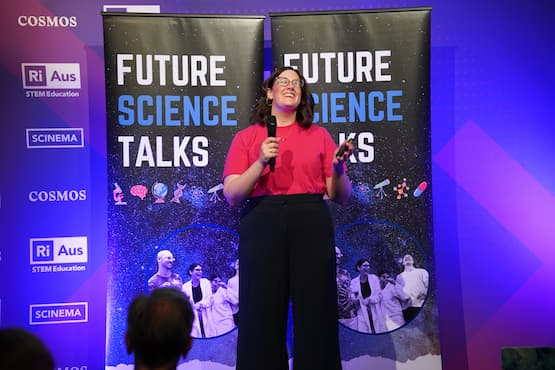Melbourne Scientists Dive into Comedy for the International Comedy Festival
A group of brave scientists in Melbourne are turning to comedy as part of a new program to connect audiences to Australia’s latest scientific endeavours and discoveries.
They’re using humour to connect with audiences at the Melbourne International Comedy Festival about a range of fascinating and challenging topics including immunology, climate science, nanomedicine and cosmology.
The scientists have been training for the past two months as part of the Science Comedy Program by Future Science Talks. The program includes a series of workshops that help scientists to jazz up their presentations, with the goal for each talk to be 20 per cent humour and 80 per cent science.
Dr Kim Reid from Monash University’s School of Earth Atmosphere and Environment is one of the 23 scientists participating in the program.
“It has been fascinating learning how I can use humour to connect better with audiences. Writing jokes is surprisingly methodical and easy to learn,” said Dr Reid, whose field of expertise is climate change and rainfall.
“Facts and graphs don’t always spur people into action, but maybe if I crack some jokes, we’ll reach net-zero faster,” she said.
Each show at Science Gallery Melbourne features seven to eight scientists who discuss how their research and discoveries will impact the lives of Australians and deepen our understanding of the world.
Future Science Talks Director David Crisante is spearheading the program.
“Our goal is to help Australians learn more about the vast scientific advancements in science that is taking place right here in Australia’s cities and regional centres,” said Mr Crisante.
“It’s incredibly rewarding to help scientists be more courageous in connecting to public audiences. Humour can help explain complex topics and audiences love both the humour as well as the insight that they gain from coming to the talks.
“Most of the speakers are early to mid-career science professionals. Their research is cutting edge and hugely relevant to our way of life.”

